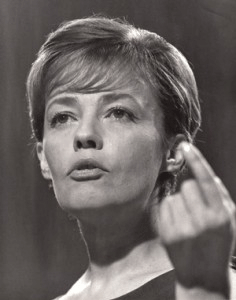The rise of the Rose d’Or and a welcome back ‘home’
10 May 2013
In 1961 - the year that the Beatles first performed at the Cavern Club, the Berlin wall went up and ‘Nous les amoureux’ by Jean-Claude Pascal won the Eurovision Song Contest for Luxembourg - the Rose d’Or awards for excellence in television arts were established.
Based in Switzerland, the Rose d’Or aimed to promote the exchange of television programmes from around the world and to reward outstanding achievements in creating original entertainment. Organised by the city of Montreux with the support of the Swiss public broadcasting organisation (SRG SSR), the original attendees enthusiastically discussed the implications of the brand new technology that would one day make colour television available to everyone.
In the first event, thirty seven broadcasters from nineteen countries submitted entries and were assessed by an international jury of industry professionals. From that year onwards, the Rose d’Or awards were rightfully regarded as the most important networking event for the television industry worldwide, promoting a friendly exchange of ideas and expertise.

Jeanne Moreau
From 1965, Eurovision became the key patron of the Rose d’Or awards and held this role for thirty six years until 2001. In 2013, after eleven years of private coordination, Eurovision gained back the ownership rights and is holding the event outside of Switzerland for the first time since its inception in 1961. “We are delighted to be bringing the Rose d’Or back home,” says Eurovision Media Director Annika Frankenhauser.
.png)
Marty Feldman and Petula Clark
But let’s not forget the celebrities who participated in the event in the past: the list is long and very varied. Awards presenter Jeanne Moreau launched her career as a singer at the Rose d’Or; The Rolling Stones attended in 1964 and Yves Montand, Woody Allen, Buster Keaton and Marianne Faithfull were also honoured guests in 1965 and 1966 respectively.
1967 saw colour films being shown for the first time and the jury were given a rather novel ‘office’ to work in. The very best entries were viewed and assessed, with the selection of the finalists occurring whilst they travelled around Lake Geneva on a steam boat.
.png)
Monty Python’s Flying Circus (1971)
The creation of original works remained in the forefront of the broadcasters and creators and the Rose d’Or became even more highly coveted as the 1970s continued to reward the very best in television talent with luminaries including the cast of Monty Python’s Flying Circus, The Goodies, Tony Bennett, Fats Domino, Roy Buchanan, Millie Jackson and The Muppet Show. Winners came from Austria, Sweden, Spain, Italy, Norway, United Kingdom, United States and Canada.
.png)
The Muppet Show’s Kermit the Frog displaying his BAFTA and Rose d’Or awards in 1977
By the 1980s, producers and commercial broadcasters were also invited to submit their programmes and participation levels and shared creative values increased. Countries as far afield as Japan, South Africa, Argentina, Denmark and Ireland were also recognised for their inspired programmes.
In 2000, Eurovision was helped to celebrate its fifty year anniversary by being awarded an honorary Rose d’Or.
The highly-respected Rose d’Or formula has continued for over five decades but has also been at the forefront to recognise and incorporate advances in technology, increasing global impact and entries from everyone involved in the development of innovation in television; public, independent and professionals alike.
.png)
Jeremy Clarkson, collected the Honorary Rose Award in 2012
This year, the Rose d'Or Awards have seen over three hundred entries from over thirty countries since returning back to Eurovision. “This allows public service broadcasters to connect with everyone in the industry, including commercial broadcasters and independent producers,” Ms Nyberg Frankenhaeuser says. “The quality and number of the entries this year have been exceptional and the Rose d’Or is the award programme makers most covet because they truly symbolize the pinnacle of success for entertainment programming.”
The Rose d’Or Awards ceremony will be leaving Switzerland for the first time in its 52 year history to be held in Brussels as the ultimate event to the Eurovision Media Summit on 30th May. Extra Eurovision magic will be provided by live performances from winners of the Eurovision Young Dancers and the Eurovision Song Contest. The evening will be hosted by Dutch TV celebrity Lucille Werner, with Princess Astrid and Prince Lorenz of Belgium in attendance. Click here to register.
With a new lease of life, the legendary quality, originality and entertainment will continue to embody the spirit of the Rose d’Or for its fifty second year and beyond.


